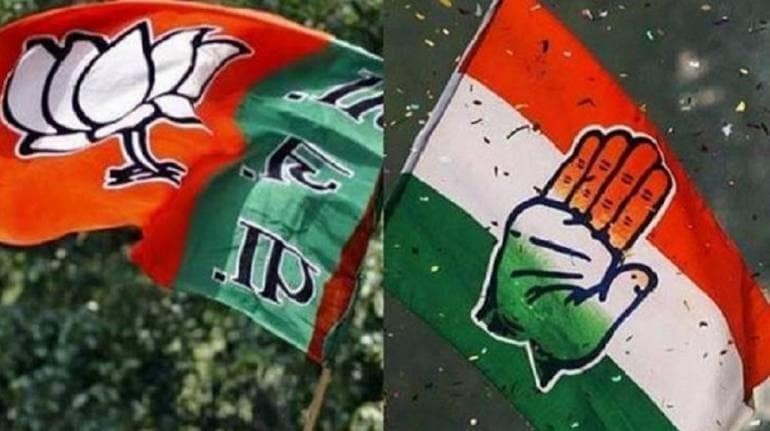



Impermanence in politics is something that most politicians relate easily to changing fortunes in their lives. If the results of the assembly polls in Maharashtra and Haryana have achieved anything, it has only reinforced the idea of impermanence.
Performance and reward may be co-related, but not always in a direct proportion. Tricks of the trade may work in most of the situations, but some may render defunct in the best of the situations. Newer leaders may appear to be very functional in the most difficult spots, but dysfunction can set at any time in the course of a political journey.
Hardened critics of Prime Minister Narendra Modi and the Bharatiya Janata Party (BJP) read in these results a big retribution for the ruling party’s ‘arrogance’ and its methods of consolidation of power using not-so-fair means. Nevertheless, the BJP has come back to power in Maharashtra and Haryana, which is a rare phenomenon in the both states.
Yet, the mood in the BJP’s rank and file is not so great. It needed Modi to remind the cadre that the party had achieved something: “they gave graft-free governments and, definitely needed to do better in the times to come.”
In Maharashtra, the BJP showed that its strike rate — number of seats won against the number of seats contested — was better compared to the 2014 assembly elections. In Haryana, the BJP could increase its vote share, but not necessarily in terms of seats.
Similarly, among the opposition parties, there is cold comfort from the poll results: they could not unseat the BJP from power. Their satisfaction is limited to the BJP being unable to win a simple majority in Haryana.
In Maharashtra, National Congress Party (NCP) chief Sharad Pawar singlehandedly managed to show that his party could retain its sway over Maratha-dominated western Maharashtra and deny Chief Minister Devendra Fadnavis the number of seats he aspired for. However, Pawar’s long-standing ally, the Congress was in no great shape to provide the force multiplier needed for this alliance to overthrow the BJP-Sena combine.
In Haryana, former Chief Minister and Congress leader Bhupinder Singh Hooda — who was brought to the fore a few days before the elections, after a long stint in the dog house for losing the 2014 polls — managed to rally the Jat community in support of the Congress to give it a decent number (30 in a 90-member house). However, his own record in office did not prevent the incumbent Manohar Lal Khattar from getting the first shot at forming government.
Both the states saw very less of campaign from the Gandhi family. In fact, Sonia Gandhi in her new avatar as Congress president after her son Rahul Gandhi vacated the post, did not step out of her home. Rahul, on the other hand, managed a handful of meetings.
The absence of a strong Opposition narrative at the national level did not help matters.
Why did the voters chose to exercise their mind in this manner, showing a shift from their pattern of voting during the 2019 Lok Sabha polls, which saw the Modi-led BJP win an impressive mandate for a second term? The answer, perhaps, lie in the fact that national issues such as Article 370 did not give much thrust to the BJP, which was bedevilled by incumbency issues in both the states.
Local issues, particularly unemployment due to an economic slowdown and continuing agrarian distress, clouded voters’ perceptions about the incumbent ministers and MLAs, though it did not exactly convert into a large-scale resentment against the BJP.
Modi’s continued popularity at the national level cannot always help the BJP paper over local resentment of dominant castes such as the Jats in Haryana and the Marathas in Maharashtra, who feel less empowered under leaders such as Khattar and Fadnavis. So, you cannot wish away the caste consolidation behind satraps such as Hooda and Pawar, or a more youthful Dushyant Chautala.
More importantly, BJP President and Union minister Amit Shah and his team of poll managers must also realise that effecting desertions from the Opposition ranks and bringing them into the BJP at the cost of loyal leaders and workers is not guaranteed to work in all elections. After all, 30 rebels cost the BJP dearly in Maharashtra. This also opened up a scenario where a recalcitrant ally such as the Shiv Sena become more assertive than before and extract its pound of flesh.
Relatively ‘successful’ CMs such as Khattar and Fadnavis cannot weave magic if their ministers do not meet the voters’ expectations. The lessons from Chhattisgarh, Madhya Pradesh and Rajasthan are still relevant. Eight ministers lost in Maharashtra and six in Haryana. BJP cadre often accused them of being arrogant.
The larger message is, of course, beyond the local factors, Modi and the BJP can no longer ignore the impact of economic slowdown on its appeal because the lives of common people still remain in distress.
Shekhar Iyer is former senior associate editor of Hindustan Times and political editor of Deccan Herald. Views are personal.Discover the latest Business News, Sensex, and Nifty updates. Obtain Personal Finance insights, tax queries, and expert opinions on Moneycontrol or download the Moneycontrol App to stay updated!
Find the best of Al News in one place, specially curated for you every weekend.
Stay on top of the latest tech trends and biggest startup news.